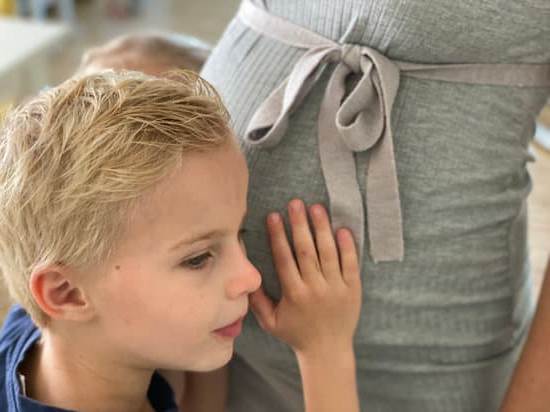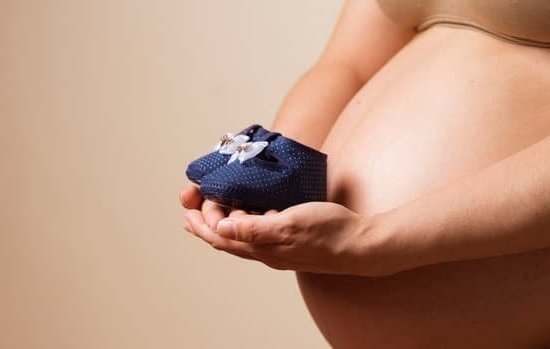Pregnancy symptoms are often the first indicators of a new life growing inside a woman’s body. From the moment of conception, various changes occur that can signal the presence of pregnancy. Understanding these symptoms and knowing when they start is crucial for women who are trying to conceive or suspect they may be pregnant. In this article, we will explore how early pregnancy symptoms start, the common indicators to look out for, and when to seek medical advice.
Pregnancy symptoms can vary widely from woman to woman and even from one pregnancy to the next. Some women may experience noticeable signs within the first few weeks of pregnancy, while others may not notice any changes until several weeks in. It is important for individuals to be aware of these symptoms in order to recognize them if they occur and understand when it may be time to take a pregnancy test.
As we delve into this topic, we will discuss common early pregnancy symptoms such as fatigue, breast tenderness, nausea, mood swings, and physical changes like bloating and frequent urination. We will also explore how these symptoms can be influenced by hormonal changes, along with ways to differentiate them from other potential causes.
By gaining a better understanding of how early pregnancy symptoms manifest, individuals can be better prepared for what lies ahead during this exciting and transformative time in their lives.
Understanding Pregnancy Symptoms
Pregnancy symptoms can start as early as one week after conception. For some women, the earliest signs of pregnancy may appear in the first few weeks after conception. These early signs can include implantation bleeding, cramping, and breast tenderness. It is important to note that every woman’s body is different, and pregnancy symptoms can vary from person to person.
During the first few weeks of pregnancy, a woman may experience symptoms such as fatigue, nausea, and food aversions. These early signs are caused by hormonal changes in the body as it prepares for pregnancy. It’s important to understand these symptoms so that you can properly differentiate them from normal bodily functions or other health issues.
One key way to recognize early pregnancy symptoms is through understanding the role of hormones in the body during this time. Hormonal changes can cause mood swings, heightened sense of smell, and food aversions. Knowing how these changes affect your body can help you identify whether you might be pregnant or experiencing something else entirely.
| Early Pregnancy Symptom | Description |
|---|---|
| Implantation bleeding | Light spotting that occurs when the fertilized egg attaches to the lining of the uterus. |
| Fatigue | Feeling more tired than usual due to increased progesterone levels. |
| Nausea | Feeling queasy or experiencing morning sickness due to hormonal changes. |
Week 1-2
During the first two weeks of pregnancy, a crucial process called implantation occurs. This is when the fertilized egg attaches itself to the uterine wall, signaling the start of pregnancy. Implantation typically takes place around 6-12 days after conception, and while it is a significant event in pregnancy, it can also bring about some early symptoms for some women.
Potential symptoms during implantation:
- Light spotting: Some women may experience light spotting or bleeding, known as implantation bleeding, as the fertilized egg attaches to the uterine lining.
- Cramping: Mild cramping in the lower abdomen may occur during implantation, resembling menstrual cramps.
- Changes in cervical mucus: A woman may notice changes in her cervical mucus as her body prepares for pregnancy.
It’s important to note that not all women will experience these symptoms during implantation. In fact, some women may not have any noticeable symptoms at this stage. Every woman’s body is unique and may respond differently to the process of implantation and early pregnancy. If you are trying to conceive and suspect you might be pregnant based on these early signs, it’s advisable to take a home pregnancy test or consult with a healthcare provider for confirmation.
Understanding these potential symptoms during implantation can alleviate concerns and help women recognize the early stages of pregnancy. By being aware of what to expect during this time period, individuals can better understand their bodies’ responses and take necessary steps towards confirming their pregnancy.
Week 3-4
During weeks 3-4 of pregnancy, many women begin to experience the early signs of pregnancy. These signs can vary from woman to woman and may not be immediately recognizable as symptoms of pregnancy. It is important to understand what these early signs are and how they differ from other causes in order to determine if pregnancy is a possibility.
Early Symptoms Breakdown
At this stage, common early symptoms may include fatigue, breast tenderness, nausea, and increased urination. These symptoms are caused by hormonal changes as the body begins preparing for pregnancy. Fatigue is often one of the first signs to appear, followed by breast tenderness and nausea. It is important to note that these symptoms can also be attributed to other factors such as stress or illness.
Confirmation of Pregnancy
While experiencing these early signs may lead to suspicion of pregnancy, it is essential to confirm with a healthcare provider before making any assumptions. There are various tests available for confirming pregnancy, such as urine and blood tests. Consulting a healthcare provider is crucial in order to receive proper prenatal care and guidance for a healthy pregnancy.
Distinguishing Symptoms
It can be challenging to differentiate between common early pregnancy symptoms and those caused by other factors. Keeping track of symptoms and their duration, in addition to seeking medical advice when necessary, will help in distinguishing between normal bodily functions and potential signs of pregnancy. Understanding how these symptoms present themselves during weeks 3-4 will better prepare women for what to expect during this crucial stage of early pregnancy.
Week 5-6
During weeks 5-6 of pregnancy, hormonal changes can lead to a variety of symptoms that may be early indicators of pregnancy. Understanding these changes and their potential effects on the body is important for women who are trying to conceive or suspect they may be pregnant.
Role of Hormones
During this stage of pregnancy, hormones such as estrogen and progesterone play a crucial role in maintaining the pregnancy and supporting fetal development. These hormonal changes can also result in a range of physical and emotional symptoms that vary from woman to woman.
Possible Symptoms
Some common symptoms during weeks 5-6 may include mood swings, food aversions, and a heightened sense of smell. Mood swings are often attributed to the surge in hormones, while food aversions and an increased sensitivity to odors can be linked to the changing levels of estrogen.
Managing Symptoms
For many women, managing these symptoms can be challenging, especially if they are experiencing them for the first time. It’s important for women to understand that these symptoms are normal and temporary, and that self-care activities like getting plenty of rest, staying hydrated, and maintaining a balanced diet can help alleviate some discomfort.
Understanding the impact of hormonal changes during weeks 5-6 is essential for recognizing early signs of pregnancy. While individual experiences may vary, being aware of these potential symptoms can help women identify changes in their bodies and seek appropriate medical advice if needed.
Week 7-8
During weeks 7 and 8 of pregnancy, women may start experiencing physical changes as their bodies continue to adjust to the growing fetus. It is important for expectant mothers to understand what these changes are and when they might occur. Here are some common physical symptoms that tend to manifest during this stage:
1. Bloating: Many women experience bloating during early pregnancy due to hormonal changes and an increase in progesterone levels, which can cause the digestive system to slow down.
2. Frequent Urination: The growing uterus puts pressure on the bladder, leading to a need for more frequent trips to the bathroom. This is a common symptom of pregnancy and is often one of the first signs that a woman may notice.
3. Cramping: Some women might experience mild cramping during early pregnancy, which can be mistaken for menstrual cramps. However, it is important to be attentive to any severe pain or bleeding, as these symptoms could signal a potential issue with the pregnancy.
It’s important for pregnant individuals to recognize these physical changes and understand how they differ from normal bodily functions. Consulting with a healthcare provider is crucial during this time, especially if there are concerns about unusual symptoms or discomforts.
It’s essential for expectant mothers to be mindful of their bodies and seek medical advice if needed in order to ensure a healthy pregnancy journey.
Seeking Medical Advice
It’s important to note that while experiencing early pregnancy symptoms may indicate pregnancy, the only way to confirm is through a medical test. If you suspect that you could be pregnant, it’s important to seek medical advice from a healthcare provider. This will not only provide confirmation of your pregnancy but also ensure that you receive proper prenatal care and guidance for a healthy pregnancy journey.
When considering early pregnancy symptoms, it’s vital to understand that they can sometimes overlap with symptoms of other conditions or illnesses. Therefore, consulting a healthcare professional is crucial in order to rule out any other potential causes for the symptoms. A doctor can also provide valuable information on managing and coping with early pregnancy symptoms, as well as offer personalized advice based on your individual health history.
In addition to confirming your pregnancy and addressing any concerns about symptoms, seeking medical advice early on allows for timely initiation of prenatal care. Prenatal care is essential for monitoring the progress of your pregnancy, addressing any complications or risks, and ensuring the overall health and well-being of both you and your baby. As such, making an appointment with a healthcare provider at the onset of early symptoms can contribute significantly to a healthy and successful pregnancy.
| Early Pregnancy Symptoms | Importance of Seeking Medical Advice |
|---|---|
| Nausea | Confirmation of pregnancy |
| Fatigue | Ruling out other potential causes |
| Breast Tenderness | Initiation of prenatal care |
Conclusion
In conclusion, it is crucial for women to have a clear understanding of how early pregnancy symptoms start. Recognizing the signs and symptoms of early pregnancy can be both reassuring and empowering. It allows women to make informed decisions about their health and seek appropriate medical care when necessary. The knowledge also helps in preparing both emotionally and physically for the upcoming changes during pregnancy.
It is important to remember that every woman’s experience with pregnancy symptoms may vary greatly, so there is no one-size-fits-all answer to the question “how early do pregnancy symptoms start.” Some women may experience symptoms as early as a week after conception, while others may not notice any changes until several weeks into their pregnancy journey. In addition, the intensity and duration of symptoms can also differ widely from person to person.
Despite these variations, being aware of the potential signs such as fatigue, breast tenderness, nausea, mood swings, and other physical changes will help individuals better grasp the onset of early pregnancy symptoms. If there is ever uncertainty or concern about possible symptoms of pregnancy, consulting a healthcare provider for advice and confirmation is always recommended.
Ultimately, understanding the timing and nature of these symptoms can provide women with valuable insight into their reproductive health and overall well-being during this significant time in their lives.
Frequently Asked Questions
How Can I Tell if Im Pregnant After 1 Week?
It’s unlikely to detect pregnancy after just one week, as most home pregnancy tests are designed to be used after a missed period, which occurs around 4-5 weeks into pregnancy. Some early signs such as fatigue or breast tenderness might be felt, but they can also be attributed to other causes.
How Early in Pregnancy Can You Start Feeling Symptoms?
Early pregnancy symptoms can start as soon as a week after conception, but they are more commonly felt around 6-8 weeks into the pregnancy. Symptoms like fatigue, nausea, and breast tenderness may begin early on, but every woman’s experience is different.
How Soon Can You Tell if You Are Pregnant?
Typically, you can take a home pregnancy test about a week after your missed period to determine if you are pregnant. Some women may experience symptoms even earlier, but it’s important to wait for an accurate result from the test before confirming a pregnancy.

Welcome to my fertility blog. This is a space where I will be sharing my experiences as I navigate through the world of fertility treatments, as well as provide information and resources about fertility and pregnancy.





